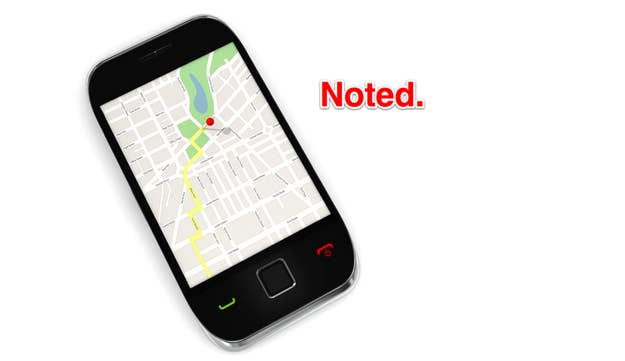
Imagine being followed at all times by a strange man with a notepad. As you walk or drive around town, he makes a note of every intersection you pass. When you call someone, he listens intently and scribbles some more. When you text, he peers over your shoulder; same when you visit websites or check your email. He asks you about all your voicemails, about who you're talking to and who's talking to you. You don't really know this man, but you tell him. Every night, when you go to sleep, he sits in a trailer outside your house and files the day's notes. One time, you saw the police pull up and knock on his door, and he handed them a box of paper.
Every morning, he's standing by your bed when you wake up.
Your wireless carrier is that man. It doesn't bother you like an actual man would, because its transcription is automatic, its recording machines aren't conscious and the process is invisible, but in terms of privacy, this man exists. "The fact is that we're living in a kind of permanent society, where records are kept on everything," Chris Calabrese, Legislative Counsel at the ACLU told BuzzFeed FWD. "Cellphones generate records on almost everything they do, and those records are extremely helpful to law enforcement." Accordingly, he says, "your cellphone is one of the most common ways you're going to encounter a law enforcement officer. And you're likely to never know."
1.3 million: That's how many times law enforcement agencies requested information from wireless carriers last year. Information which your carriers — AT&T, Verizon, T-Mobile, Cricket, Leap, MetroPCS, and especially Sprint, which operates a large prepaid business and even has a web interface for law enforcement requests — are ready and willing to provide. According to documents requested by congressman Ed Markey and reported by the New York Times, this represents a large and recent increase. The NYT notes that AT&T's law enforcement requests have increased threefold since 2007; AT&T's subscriber numbers show only about a 50% increase in the same period.
Unlike landline requests, which are pretty much limited to call records and wiretaps, these demands take many forms: there are, of course, still wiretaps and call records, as well as texting transcripts and data logs. There are location requests, either for ongoing tracking or for historical locations data, and "tower dumps," in which carriers provide a full list of people who were connected to a tower at a given time — most of whom will have nothing to do with the matter being investigated — which are easy to obtain relative to actual phone records. Calabrese points to a few lesser known tactics, too: in some cases, investigators have offered to continue to pay a suspect's phone bill so as not to lose the ability to gather data.
The likely cause of the increase, and one of the scariest things about these requests, is that a large number of them were classified as emergencies: no-warrant, fast-turnaround requests that aren't subject to the scrutiny of a judge. Many of these are clear-cut — someone dials 911 from a cellphone, and the police need to find out where the call came from. But law enforcement can invoke emergency in a wide range of situations, and there are no clear rules as to when it's appropriate. "There's no process in place right now," says Calabrese, "and there's no [codified] after-the-fact vetting that in fact there was an emergency." In other words, for law enforcement, it's probably worth a try.
A flawed process may be the culprit here, but a focus on the system makes it easy to miss the sheer magnitude of what cellphones have done to our privacy. Nearly everything you send and receive though your phone is within reach of law enforcement.
Given the right set of circumstances, and maybe after a bit of paperwork, law enforcement can see all of it — if your carrier has it on record, and it has a lot on record, it's fair game. That's the reality of wireless: with every new convenience, every new feature, comes a silent sacrifice. And like these new features, they don't go away. They just get more powerful.
